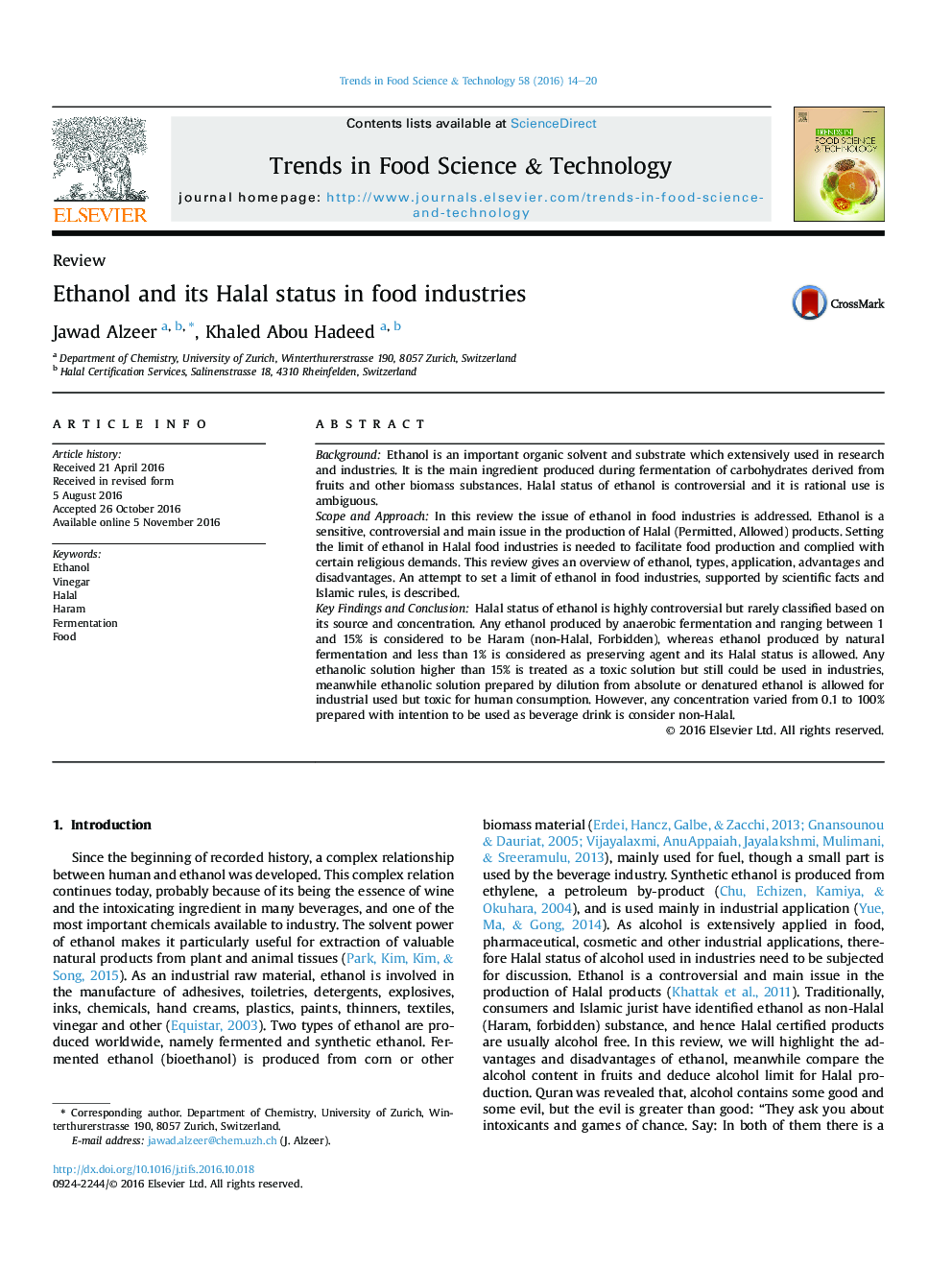| کد مقاله | کد نشریه | سال انتشار | مقاله انگلیسی | نسخه تمام متن |
|---|---|---|---|---|
| 5523805 | 1546121 | 2016 | 7 صفحه PDF | دانلود رایگان |
- Halal status of ethanol is classified based on its source and concentration.
- Ethanol produced by anaerobic fermentation is considered to be non-Halal.
- Ethanol less than 1% and produced by natural fermentation is considered as preserving agent and Halal.
- Any solution produced from absolute or denatured ethanol is considered to be toxic but still could be used in industries.
- Ethanol produced with intention to be used as beverage drink is considered non-Halal.
BackgroundEthanol is an important organic solvent and substrate which extensively used in research and industries. It is the main ingredient produced during fermentation of carbohydrates derived from fruits and other biomass substances. Halal status of ethanol is controversial and it is rational use is ambiguous.Scope and ApproachIn this review the issue of ethanol in food industries is addressed. Ethanol is a sensitive, controversial and main issue in the production of Halal (Permitted, Allowed) products. Setting the limit of ethanol in Halal food industries is needed to facilitate food production and complied with certain religious demands. This review gives an overview of ethanol, types, application, advantages and disadvantages. An attempt to set a limit of ethanol in food industries, supported by scientific facts and Islamic rules, is described.Key Findings and ConclusionHalal status of ethanol is highly controversial but rarely classified based on its source and concentration. Any ethanol produced by anaerobic fermentation and ranging between 1 and 15% is considered to be Haram (non-Halal, Forbidden), whereas ethanol produced by natural fermentation and less than 1% is considered as preserving agent and its Halal status is allowed. Any ethanolic solution higher than 15% is treated as a toxic solution but still could be used in industries, meanwhile ethanolic solution prepared by dilution from absolute or denatured ethanol is allowed for industrial used but toxic for human consumption. However, any concentration varied from 0.1 to 100% prepared with intention to be used as beverage drink is consider non-Halal.
Journal: Trends in Food Science & Technology - Volume 58, December 2016, Pages 14-20
